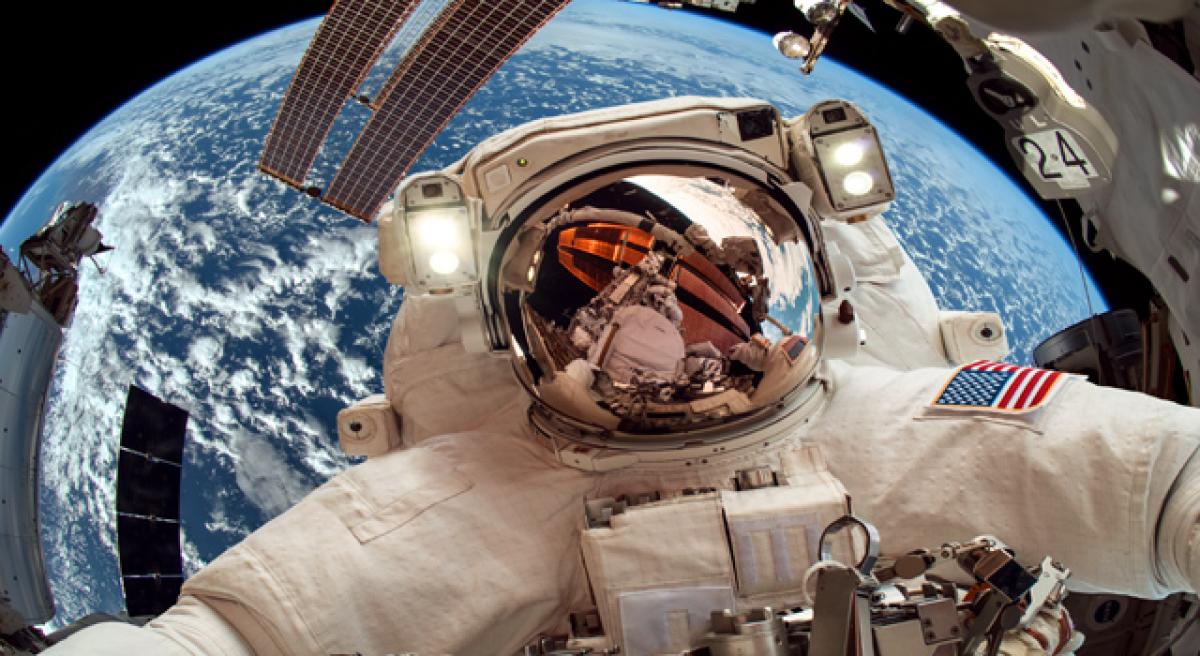Live
- Maha people gave big victory to Mahayuti led by BJP: Kishan
- Don’t rush to cover up harvested grain
- Ensure participation of all farmers in conference: CM
- Public uprising against Cong govt imminent : Bandi Sanjay
- SP conducts surprise inspection of Srikalahasti PS
- Antimicrobial resistance awareness programmes held
- BJP celebrates victory in Maharashtra Assembly polls
- BJP gets shot in the arm ahead of Delhi polls
- Mahayuti’s Maha win
- Passed exam of democracy: Soren
Just In

Astronauts who were part of the successful Apollo space mission are going through higher rates of cardiovascular problems likely caused by their exposure to deep space radiation, says a researcher from Florida State University.
Washington: Astronauts who were part of the successful Apollo space mission are going through higher rates of cardiovascular problems likely caused by their exposure to deep space radiation, says a researcher from Florida State University.
According to professor Michael Delp, dean of the College of Human Sciences, men who travelled into deep space as part of the lunar missions were exposed to levels of galactic cosmic radiation that have not been experienced by any other astronauts or cosmonauts.
That exposure is now manifesting itself as cardiovascular problems, said the first study looking at the mortality of Apollo astronauts.
“We know very little about the effects of deep space radiation on human health, particularly on the cardiovascular system. This gives us the first glimpse into its adverse effects on humans,” Delp said.
The Apollo programme ran from 1961 to 1972 with 11 manned flights into space between 1968 and 1972. Nine of those flew beyond Earth's orbit into deep space.
The programme is most notable for landing men on the moon as well as the failed mission of Apollo 13 that inspired the popular 1995 Ron Howard film.
Delp found that 43 percent of deceased Apollo astronauts died from a cardiovascular problem. That is four to five times higher than non-flight astronauts and astronauts who have traveled in low Earth orbit.
Of the 24 men who flew into deep space on the Apollo lunar missions, eight have died and seven were included in the study. The eighth -- Edgar Mitchell -- died after the data analysis had been completed.
Delp and his colleagues also exposed mice to the type of radiation that Apollo astronauts would have experienced.
After six months -- the equivalent of 20 human years -- the mice demonstrated an impairment of arteries that is known to lead to the development of atherosclerotic cardiovascular disease in humans.
"What the mouse data show is that deep space radiation is harmful to vascular health," Delp noted in a paper appeared in the journal Scientific Reports.
Delp is working with NASA to conduct additional studies on the Apollo astronauts regarding their cardiovascular health. NASA has unveiled plans for US orbital missions around the moon from 2020 to 2030 in preparation for a manned flight to Mars.
Russia, China and the European Space Agency are also planning lunar missions. SpaceX, owned by Elon Musk, has proposed landing humans on Mars by 2026.

© 2024 Hyderabad Media House Limited/The Hans India. All rights reserved. Powered by hocalwire.com







